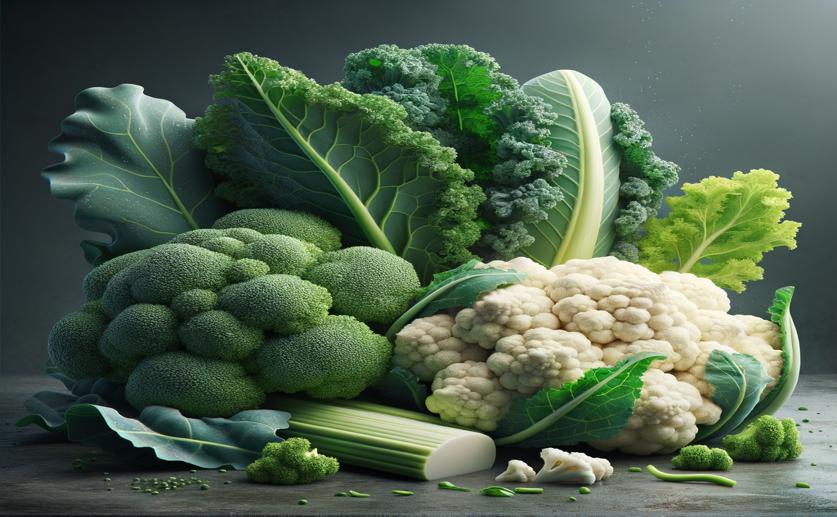
Health Benefits and Nutrient Profile of Broccoli, Kale, and Cauliflower Extracts
Jenn Hoskins
4th August, 2024

Image Source: Natural Science News, 2024
Key Findings
- The study by the Federal University of Pelotas found that extracts from broccoli, cabbage, and cauliflower contain health-promoting compounds like glucosinolates and phenolic compounds
- These vegetable extracts showed strong antioxidant activity, effectively neutralizing harmful radicals linked to oxidative stress and inflammation
- The extracts also demonstrated significant antimicrobial properties, particularly cauliflower extract, which was highly effective against the bacteria Staphylococcus aureus
References
Main Study
1) Chemical Composition, Antimicrobial and Antioxidant Activities of Broccoli, Kale, and Cauliflower Extracts.
Published 3rd August, 2024
https://doi.org/10.1007/s11130-024-01212-8
Related Studies
2) Glucosinolates and phenolic compounds rich broccoli extract: Encapsulation by electrospraying and antitumor activity against glial tumor cells.
3) Chemical Profile and Biological Activities of Brassica rapa and Brassica napus Ex Situ Collection from Portugal.
4) Antimicrobial and antioxidant activity of unencapsulated and encapsulated clove (Syzygium aromaticum, L.) essential oil.



 11th April, 2024 | Jim Crocker
11th April, 2024 | Jim Crocker